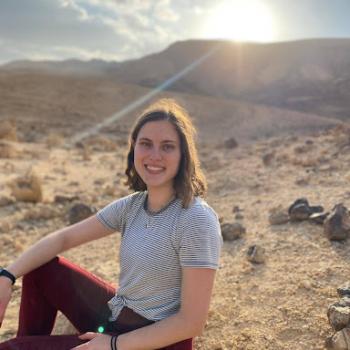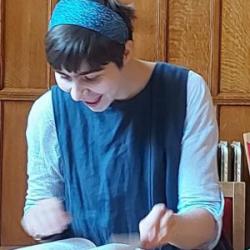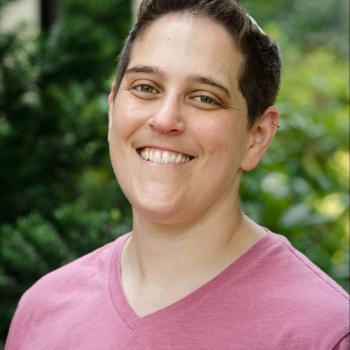By Rabbi Avi Killip, Hebrew College Rabbinical School ’14
Parashat Emor Leviticus 21:1-24:23
The priest must be holy. Parshat Emor tells us how to achieve this, through a myriad of very specific (and sometimes unintuitive) rules and directions. One such rule can be found in Leviticus 21:10: “The priest who is exalted above his fellows, on whose head the anointing oil has been poured and who has been ordained to wear the vestments, shall not bare his head or rend his vestments.” Rashi tells us what it means to not bear his head: “he shall not [let his hair] grow wild on account of mourning.” How long does it take for hair to grow wild? Rashi answers: Letting it grow for more than thirty days.
Two vivid images pop into my head as I read these words – two images of hair, left too long without a haircut. The first is of a member of my community who had grown a long beard over the last year. Only when I saw an article about him in a local newspaper, only after he had shaved, did I learn that his beard had been a statement of solidarity and mourning for the Bibas family. After Oct 7th, seeing the faces of the terrified Bibas children, he had decided not to shave until they were home. The second encounter was more recent. I mentioned to a friend, who usually keeps a short haircut, that I had never seen her with such long hair. “I really don’t like it,” she said to my surprise. She explained that after October 7th she just didn’t feel like it was right to get a haircut, so she told herself she’d wait till the hostages were home. Her hair has now grown far longer than she had anticipated, more than 20 times Rashi’s thirty days, and she’s not sure what to do.
Reflecting upon my friend’s words, I hear in my head the words of the 1970 Crosby, Stills, Nash, & Young song:
Almost cut my hair
It happened just the other day
It was gettin’ kinda long
I coulda said it was in my way
But I didn’t and I wonder why
I feel like letting my freak flag fly
Yes, I feel like I owe it to someone
The last line echoes for me: “I feel like I owe it to someone.” There is something universal, perhaps, about the instinct to refuse a haircut as a way of making a statement, of declaring a commitment to someone or something big. This is ritual at its purest. In the pain of mourning we may be desperate for something concrete to do differently, some way to show that we are not okay, that the world as it is now is not okay. Not cutting our hair can provide this physical, visceral tool. My friends’ “wild” hair offers an external manifestation of their internal anguish.
We see this instinct to let hair grow in our Jewish ritual in two places– our own laws of aveilut, of ritual mourning, and in the concept of the Nazarite vow. In each area there is push back, a check on the wild hair. The Jewish mourner cuts their hair at thirty days — the time marker referenced by Rashi on our parsha — and thereby ends their initial month of mourning. The mourning instinct is given a defined structure that limits it and offers a container for what cannot really ever be contained. While the mourning does not end after thirty days, the mandated haircut offers a concrete path back to normalcy. The nazir also usually shaves after one month, which is the standard timeline of a Nazarite vow.
The verse from our parsha offers this mandated grooming specifically for priests, telling us that unbridled, limitless mourning is incompatible with priestly holiness. A head that has been anointed in oil cannot also grow wild in mourning. The priest has a job to do: at some point the mourning must end and the holy work resume. In the context of Aveilut, the rabbis expand this prohibition from the priests to all people by codifying laws that limit mourning to thirty days.
When a loved one dies, we are mandated to let our hair grow; and then mandated to cut it. We mourn, and then we get back to work. We cannot live in the state of perpetual mourning, but we must make space for it. There is a time to cut our hair, but before that we must make time to let it grow.
Rabbi Avi Killip ’14 is the Executive Vice President at Hadar. A graduate of Hebrew College Rabbinical School and a member of the Hebrew College Board of Trustees, Avi also holds Bachelors and Masters from Brandeis University. She was a Wexner Graduate Fellow and a Schusterman Fellow. Avi teaches as part of Hadar’s Faculty and is host of the Responsa Radio podcast. Avi lives in Riverdale, NY with her husband and three young children.

















